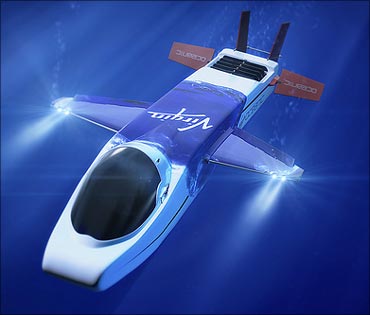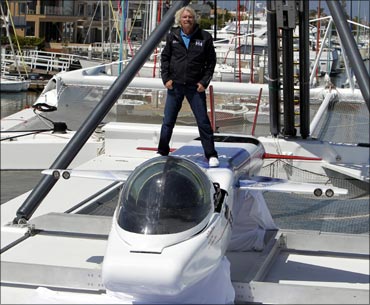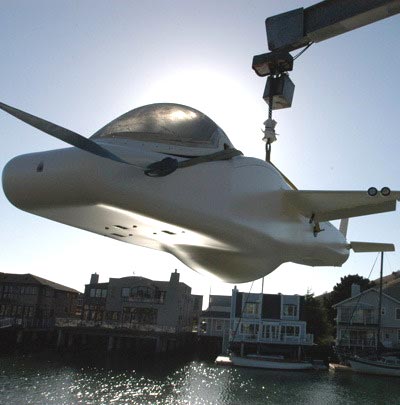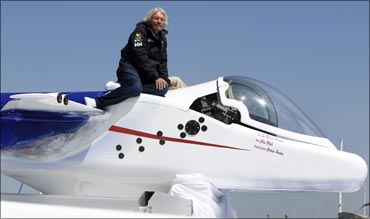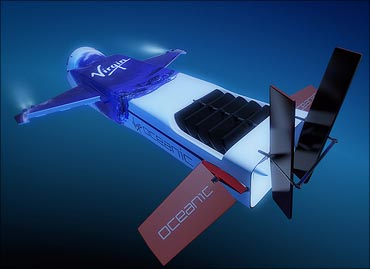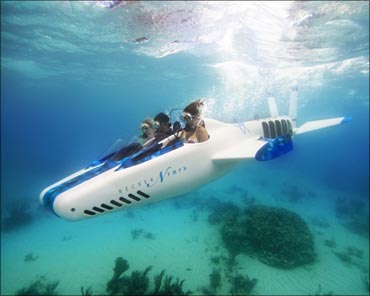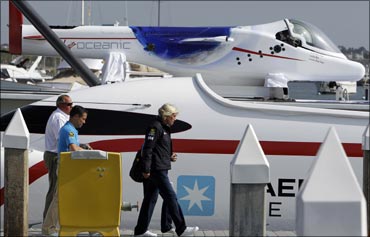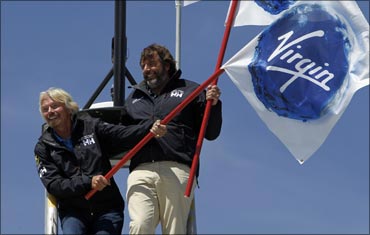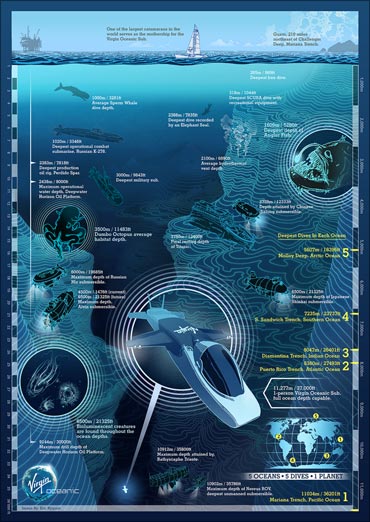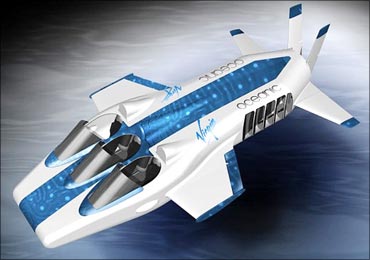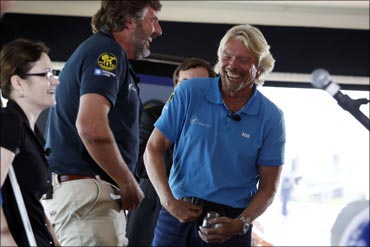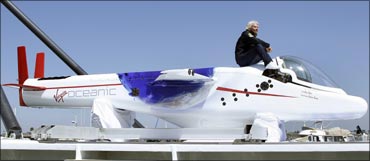 | « Back to article | Print this article |
Branson's flying submarine to explore oceans' depths
Virgin Group chairman, adventurer and billionaire Sir Richard Branson, after having set his sights on commercial space travel through his Virgin Galactic, is now targeting the oceans' depths.
Branson on April 5 showcased the 'Necker Nymph', a solo-piloted 'flying' mini-submarine in which he plans to explore depths to which no man has ever been before in all the five oceans on earth.
Click NEXT to read on . . .
Branson's flying submarine to explore oceans' depths
Along with Sir Richard Branson, explorer Chris Welch too will test the depths of the earth's oceans in the submarine.
Click NEXT to read on . . .
Branson's flying submarine to explore oceans' depths
The submarine's first dive is likely to take place later this year.
Click NEXT to read on . . .
Branson's flying submarine to explore oceans' depths
Pioneered by Virgin Oceanic, Branson's new initiative, the submarine 'represents a transformational technological advance in submarine economics and performance.'
Click NEXT to read on . . .
Branson's flying submarine to explore oceans' depths
The vehicle itself is a unique design made from 8,000 pounds of carbon fibre and titanium. The pressure at the bottom of the deepest trench is over 1,000 atmospheres -- the quartz dome alone is under 13 million pounds of pressure, the weight of three space shuttles.
Click NEXT to read on . . .
Branson's flying submarine to explore oceans' depths
The Virgin Oceanic web site says that the submarine is designed by Branson's partner Graham Hawkes and is the only piloted craft in existence that has 'full ocean depth' capability.
Click NEXT to read on . . .
Branson's flying submarine to explore oceans' depths
The one person sub has an operating depth of 37,000ft (7 miles) and is capable of operating for 24 hours unaided.
Click NEXT to read on . . .
Branson's flying submarine to explore oceans' depths
Once fully descended, the submarine's hydroplanes (the equivalent of wings for submarines) and thrusters will allow it to 'fly' up to 10 km over the ocean floor whilst collecting video and data, something submersibles could only dream of.
Click NEXT to read on . . .
Branson's flying submarine to explore oceans' depths
At these depths, each individual part of the sub must be able to withstand enormous pressures, 1,500 times that of an aeroplane, and protect its pilot from the extreme conditions just inches away.
Click NEXT to read on . . .
Branson's flying submarine to explore oceans' depths
As Branson and Welch each pilot the sub to the bottom of the planet, they will be aware that should anything go wrong, there is no rescue team that can reach them; whilst backed up by a mission crew, once at depth, the pilot and craft are alone. Full pressure testing will be conducted over the next three months, the web site said.
Click NEXT to read on . . .
Branson's flying submarine to explore oceans' depths
The craft will cruise at a max of 3 knots and can dive 350ft per minute. At that speed, a dive to the bottom of the Marianna trench and back is estimated to take about five hours.
Click NEXT to read on . . .
Branson's flying submarine to explore oceans' depths
The Virgin Oceanic web site says that the submarine provides the currently unequalled capability to take humans to any depth in the oceans and to truly explore. 'It utilises the latest in composite technology and a completely unique flying wing to literally fly within the ocean environment; creatures living here such as dolphins, whales and rays have shown us this winged approach is the best and most elegant way to range the seas,' the web site says.
Click NEXT to read on . . .
Branson's flying submarine to explore oceans' depths
'The submarine is many times less expensive to manufacture and operate than any of its less capable counterparts and is in harmony with its environment,' the web site adds.
Click NEXT to read on . . .
Branson's flying submarine to explore oceans' depths
The submarine was originally commissioned by Branson's friend and fellow adventurer Steve Fossett who had intended to complete the first solo dive to the depths of the Pacific Ocean's Mariana Trench, which has a depth of 36,201 feet (or around 11 km).
